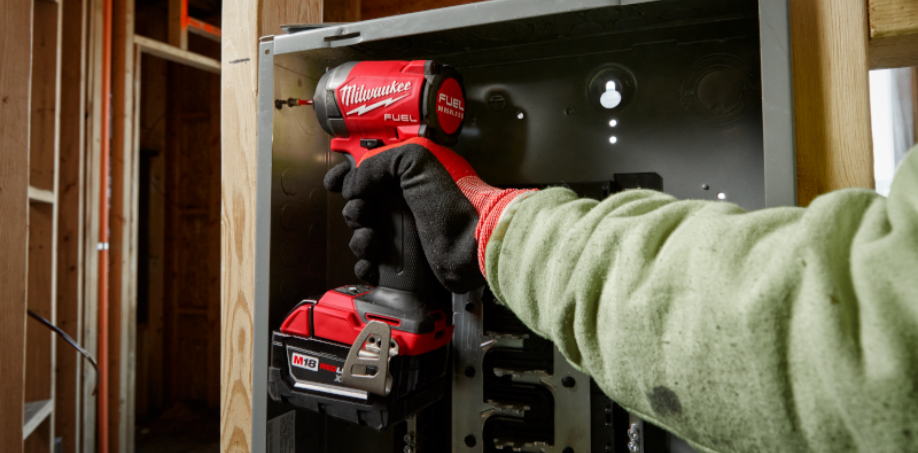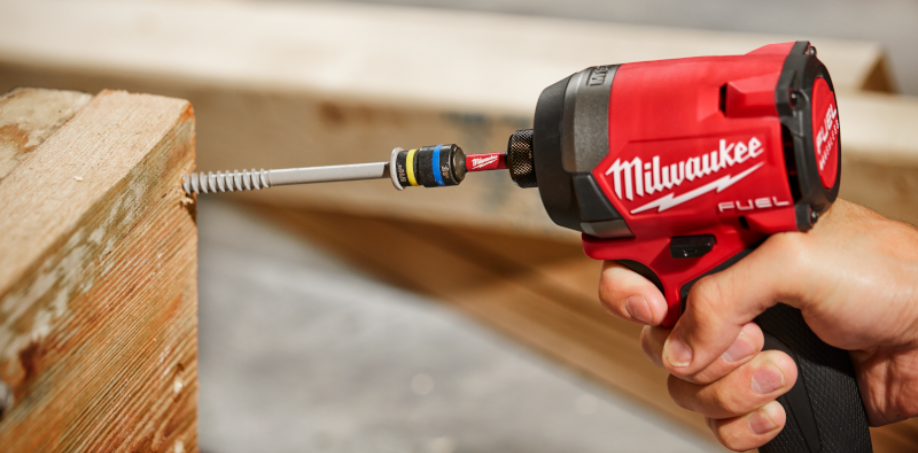Impact Driver vs. Drill: Exploring Their Different Functions

When it comes to DIY projects or professional construction tasks, selecting the appropriate tools can significantly impact your efficiency and the quality of your work. Two commonly utilized options for drilling through tough surfaces are impact drivers and drills. Although they may share some resemblances, these tools serve distinct purposes and offer unique features. In this comprehensive guide, we'll delve into the differences and similarities between impact drivers and drills, exploring their uses and aiding you in selecting the right tool for your upcoming project.
What is an Impact Driver?
An impact driver, also known as an impact drill, stands as a versatile power tool designed specifically for efficiently and precisely driving screws and fasteners. Operating by merging rotary motion with concussive blows, it delivers high torque to drive screws into various materials effectively. Impact drivers boast a compact, lightweight design and feature a quick-release chuck for seamless bit changes. A great option, is the Milwaukee M18 Impact Driver, which has the fastest driving speed of any impact driver without sacrificing power or control.

Key Features of Impact Drivers:
High Torque: Impact drivers provide substantial torque, making them ideal for driving long screws into dense materials like hardwood or metal.
Quick Bit Changes: Equipped with a quick-release chuck mechanism, impact drivers allow for fast and convenient swapping of drill bits, minimizing downtime during projects.
Reduced Strain: The impact mechanism employed by these drivers reduces strain on the user's wrist and arm, enabling extended use without fatigue.
Versatility: Impact drivers excel in a wide range of applications, including driving screws, drilling pilot holes, and assembling furniture.
What is a Drill?
A drill, on the other hand, is a versatile power tool commonly utilized for drilling holes into various materials, including wood, metal, plastic, and masonry. Unlike impact drivers, drills operate solely on rotary motion, using a motor to rotate the chuck and subsequently the drill bit. They come in various sizes and configurations to accommodate different tasks and user preferences. A popular drill in the industry is the Milwaukee M18 Fuel 1/2" Drill, which is the most powerful drill driver, delivering 1,200 in-lbs of torque.
.png)
Key Features of Drills:
Versatility: Drills are highly versatile tools suitable for a wide range of applications, including drilling holes, driving screws, and assembling structures.
Precise Drilling: With their rotary motion, drills offer precision and accuracy when drilling holes into different materials, making them essential for woodworking, construction, and renovation projects.
Variable Speed Settings: Many models of drills offer variable speed settings, allowing users to adjust the drilling speed based on the material being drilled and the specific requirements of the task at hand.
Chuck Design: Drills feature a chuck mechanism that securely holds and accommodates various drill bits, enabling users to interchange between different accessories for versatile functionality.
Differences Between Impact Drivers and Drills:
Purpose: Impact drivers are primarily used for driving screws and fasteners into various materials efficiently. Drills, on the other hand, are designed for drilling holes into different materials with precision and accuracy.
Mechanism: Impact drivers utilize a combination of rotary motion and concussive blows to drive screws effectively. Drills operate solely on rotary motion, rotating the chuck and drill bit to drill holes into various materials.
Torque: Impact drivers provide high torque output, making them suitable for driving long screws into dense materials without stalling. While drills can generate considerable torque, they typically provide less torque compared to impact drivers.
In summary, while impact drivers and drills may share some similarities, they serve distinct purposes and excel in different applications. Impact drivers are specialized for efficiently driving screws and fasteners into various materials, while drills are versatile tools suitable for drilling holes into different materials with precision and accuracy. By understanding their differences and best uses, you can select the right tool for your specific project requirements. Explore our selection of impact drivers and drills, here. Give our sales team a call to purchase your new drill today, at 877-446-4352.

